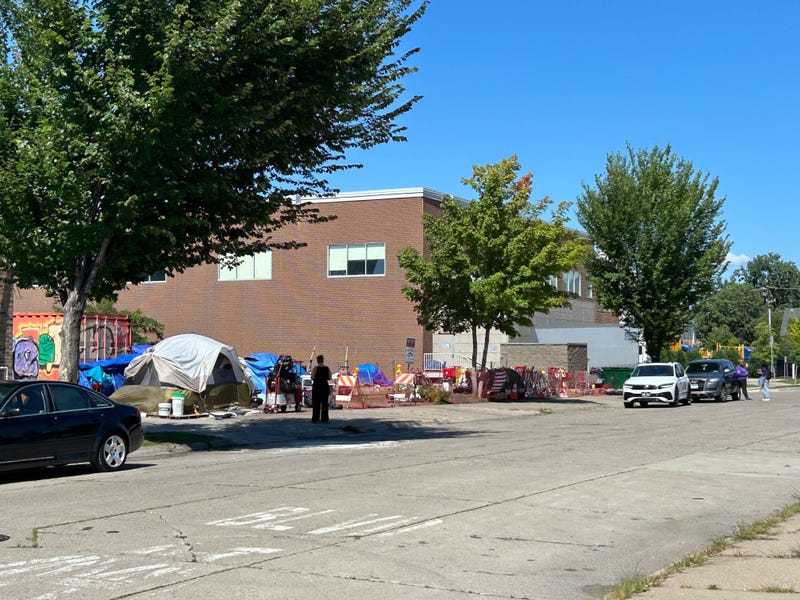
Minneapolis Police Chief Brian O'Hara is weighing in on a homeless encampment in the city that is stirring up some controversy. That's because the encampment has been set up on privately owned land on East Lake Street in south Minneapolis.
The property owner, Hamoud Sabri, turned his commercial parking lot into a camp for homeless people.
It's now setting up a showdown between the city and Sabri.
Minneapolis Health Department Commissioner Damon Chaplin says the camp was cited for a number of violations including a lack of water and sanitation facilities, plus improperly stored garbage and drug paraphernalia.
"This is not the way we want our residents to live in the City of Minneapolis," says Chaplin. "And so, it's a visual inspection of the property. We can see and take pictures of the property, we identified the sources of filth."
Sabri opened up the camp in early July. He says he's being targeted for doing what the city won't.
"I am here just for the homeless," Sabri says. "I believe they're abused and the reason they're here is they've been kicked around a lot."
O'Hara disagrees, saying it's something the city needs to handle right away.
"They're actually trying to clear out a private, homeless encampment right now in South Minneapolis, and that there's still people who are unhoused that are suffering, you know, from complicated issues mental health," O'Hara said on Tuesday.
Speaking to WCCO's Adam and Jordana, O'Hara says that the number of encampments is down in the city which is the good news. He says those suffering from complicated issues, mental health issues, fentanyl addiction, and they're also on the streets, makes the encampments a dangerous situation.
"There are still people congregating in different spots around town still suffering from those issues, but in terms of what it was like when I first got here with, you know, 200-300 people in in an encampment, that isn't happening today," says O'Hara. "So that is positive, because they were just crime dens and just places where people could almost freely use fentanyl until they died."
Minneapolis Mayor Jacob Frey has called for a closed-door meeting on Wednesday with the City Council to talk about potential legal action against Sabri. The city says it violates public health laws.
Sabri spoke with reporters earlier on Tuesday.
"We've been trying to work with them for garbage cans so they could avoid all that, and then they keep talking about the commissioners right behind you, you know, about the nuisance and all that stuff," says Sabri. "These are homeless. Their livelihood is what they got with them."
Minneapolis has already fined Sabri $5,000 for those violations, noting the lack of water and sanitation facilities, plus improperly stored garbage and drug paraphernalia.
O'Hara says housing them on private property can create a litany of issues.
"Well, there's no question that that hasn't been helpful for both the people that are there in the encampment, as well as the people who live there in the neighborhood," O'Hara says. "It's not healthy, it's not safe, and frankly, it's not helping the problem."
The homeless situation continues to plague Minneapolis with no easy answers according to O'Hara.
"I am told that there's more people that have taken advantage of services. We don't track that," says the chief. "But at the same time, I know we definitely still see groups of people congregating on the street. They're just not in the encampments with the tents that you were seeing before. So clearly, not everybody is off the street. That's obvious, but it's also part of the issue, is not everybody wants to get out of that. And it's frankly, it's not easy for people to break some of those addiction issues."
